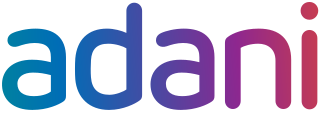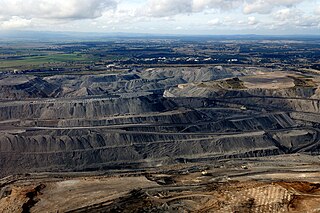Related Research Articles

The Australian Conservation Foundation (ACF) is Australia's national environmental organisation, launched in 1965 in response to a proposal by the World Wide Fund for Nature for a more co-ordinated approach to sustainability.

Damper is a thick home-made bread traditionally prepared by early European settlers in Australia. It is a bread made from wheat-based dough. Flour, salt and water, with some butter if available, is lightly kneaded and baked in the coals of a campfire, either directly or within a camp oven.
NAIDOC Week is an Australian observance lasting from the first Sunday in July until the following Sunday. The acronym NAIDOC stands for National Aborigines and Islanders Day Observance Committee. NAIDOC Week has its roots in the 1938 Day of Mourning, becoming a week-long event in 1975.

GetUp! is an independent progressive Australian political activist group. It was launched in August 2005 to encourage Internet activism in Australia, though it has increasingly engaged in offline community organising.

Adani Group is an Indian multinational conglomerate, headquartered in Ahmedabad. Founded by Gautam Adani in 1988 as a commodity trading business, the Group's businesses include sea and airport management, electricity generation and transmission, mining, natural gas, food, weapons, and infrastructure. More than 60% of its revenue is derived from coal-related businesses.
Greenpeace Australia Pacific (GPAP) is the regional office of the global environmental organisation Greenpeace. Greenpeace Australia Pacific is one of Australia's largest environmental organisations.

Coal is mined in every state of Australia. The largest black coal resources occur in Queensland and New South Wales. About 70% of coal mined in Australia is exported, mostly to eastern Asia, and of the balance most is used in electricity generation. In 2019-20 Australia exported 390 Mt of coal and was the world's largest exporter of metallurgical coal and second largest exporter of thermal coal. While only employing 50,000 mining jobs nationally coal provides a rich revenue stream for governments.
The UK Youth Climate Coalition (UKYCC) is a non-profit youth organisation in the United Kingdom. It is part of The Climate Coalition in the UK
The Australian Youth Climate Coalition (AYCC) is a youth organisation in Australia focused on climate change activism. The organisation aims "to build a movement of young people leading solutions to the climate crisis", by empowerment and education, running strategic campaigns, shifting the narrative, and building a movement.

Fracking has become a contentious environmental and health issue with Tunisia and France banning the practice and a de facto moratorium in place in Quebec (Canada), and some of the states of the US.

Adani Enterprises Limited (AEL) is an Indian multinational publicly-listed holding company and a part of Adani Group. It is headquartered in Ahmedabad and primarily involved in mining and trading of coal and iron ore. Through its various subsidiaries, it also has business interests in airport operations, edible oils, road, rail and water infrastructure, data centers, and solar manufacturing, among others.

The anti-fracking movement is a political movement that seeks to ban the practice of extracting natural gasses from shale rock formations to provide power due to its negative environmental impact. These effects include the contamination of drinking water, disruption of ecosystems, and adverse effects on human and animal health. Additionally, the practice of fracking increases the amount of carbon dioxide released into the atmosphere, escalating the process of climate change and global warming. An anti-fracking movement has emerged both internationally, with involvement of international environmental organizations, and nation states such as France and locally in affected areas such as Balcombe, Sussex, in the UK. Pungești in Romania, Žygaičiai in Lithuania, and In Salah in Algeria. Through the use of direct action, media, and lobbying, the anti-fracking movement is focused on holding the gas and oil industry accountable for past and potential environmental damage, extracting compensation from and taxation of the industry to mitigate impact, and regulation of gas development and drilling activity.

The Carmichael coal mine is a coal mine in Queensland, Australia, owned by the Adani Group's Australian subsidiary Bravus Mining & Resources. It was approved by the government in 2014 and has been operational since December 2021. The mine was initially planned to produce 60 million tonnes of coal per year; however, funding difficulties resulted in downsizing the planned mine to produce 10 million tonnes per year. Construction of the mine started in June 2019, and on 29 December 2021 the first coal shipment from the Carmichael Mine was ready for export.
The NAIDOC Awards are annual Australian awards conferred on Australian Aboriginal and Torres Strait Islander individuals during the national celebration of the history, culture and achievements of Australian Aboriginal and Torres Strait Islander peoples known as NAIDOC Week.
Jessa Rogers is an Aboriginal Australian education leader and Fulbright Scholar currently based between Melbourne and Queensland.

Aretha Brown, or Aretha Stewart-Brown, is an Indigenous Australian youth activist, comedian, artist, and the former Prime Minister of the National Indigenous Youth Parliament.
Dem Mob, stylised as DEM MOB, is an Aboriginal hip hop group from the APY lands in northern South Australia, the first to rap in the Pitjantjatjara language.
Tishiko King is originally from Yorke Island in the Torres Strait Islands of Australia. She is the campaign director at Seed Indigenous Youth Climate Network and took part in the 2021 United Nations Climate Change Conference (COP26) in Glasgow, where she also represented the Torres Strait island organization, Our Islands Our Home.
Simon Holmes à Court is an Australian businessman and political activist. He is the son of Australia's first billionaire Robert Holmes à Court, and convenor of Climate 200. He is also a senior advisor to the Climate and Energy College at the University of Melbourne, as director of the Smart Energy Council and the Australian Environmental Grant-makers Network.
Michelle Deshong is an Aboriginal Australian political scientist and advocate for gender equality and Indigenous women. She has spent the majority of her career in shaping Indigenous affairs, including She has been CEO of the Australian Indigenous Governance Institute.
References
- 1 2 "Meet Seed Mob, Australia's First Indigenous Youth-Led Environmental Organisation". Junkee. 3 December 2020. Retrieved 10 July 2021.
- 1 2 3 4 5 6 7 8 9 10 Hocking, Rachael (1 December 2020). "'First Nations are rising': Seed Mob goes independent". NITV. Retrieved 29 May 2024.
- 1 2 3 "The young Indigenous woman fighting fracking in remote NT". The Feed . 11 November 2020. Retrieved 10 July 2021.
- ↑ "Segments: The Mission: GetUp CEO Larissa Baldwin-Roberts". Triple R 102.7FM, Melbourne Independent Radio. 1 August 2023. Retrieved 19 August 2023.
- ↑ "Larissa Baldwin-Roberts". AEGN. 8 April 2024. Retrieved 29 May 2024.
- ↑ "Larissa Baldwin-Roberts". Q+A . 19 September 2023. Retrieved 29 May 2024.
- 1 2 3 "Seed Mob to be first Indigenous youth-led environmental organisation". Medianet. Retrieved 10 July 2021.
- ↑ "Amelia Telford". NAIDOC. Retrieved 29 May 2024.
- ↑ "Amelia Telford". World Science Festival Brisbane. 24 May 2024. Retrieved 29 May 2024.
- ↑ Nicol, Emily (25 April 2018). "Water Is Life: SEED release documentary about the dangers of fracking in NT". NITV. Retrieved 29 May 2024.
- ↑ Water Is Life on Vimeo 25:48m
- ↑ "Seed Indigenous Youth Climate Network Ltd". ACNC. Archived from the original on 29 May 2024. Retrieved 29 May 2024.
- 1 2 Hannon, Kellie (23 July 2022). "Invest: In the Future with Seed Mob". Maurie and Eve. Retrieved 29 May 2024.
- ↑ "Our Team". Seed. Retrieved 10 July 2021.
- ↑ "Seed Indigenous Youth Climate Network Ltd". ACNC. Retrieved 29 May 2024.
- ↑ Reid, Georgina (9 June 2016). "Meet the Seed Mob". Wonderground. Retrieved 29 May 2024.
- ↑ "How a 3 year campaign moved Westpac to rule out new coal basins". Stop Adani. 1 August 2018. Retrieved 29 May 2024.
- ↑ Australian Conservation Foundation (2017). "An incredible moment for the #StopAdani campaign" . Retrieved 29 May 2024– via Free Online Library.
- ↑ "Big four banks distance themselves from Adani coalmine as Westpac rules out loan". The Guardian . 28 April 2017. Retrieved 10 July 2021.
- ↑ "Big four banks distance themselves from Adani coalmine as Westpac rules out loan". Business & Human Rights Resource Centre. 28 April 2017. Retrieved 29 May 2024.
- ↑ "Water is Life". Protect Country, Ban Fracking. Retrieved 10 July 2021.
- ↑ "Partners". Seed. 1 August 2018. Retrieved 29 May 2024.
- ↑ "Climate action with Seed: amplifying young Indigenous voices". Bank Australia. 29 May 2024. Retrieved 29 May 2024.